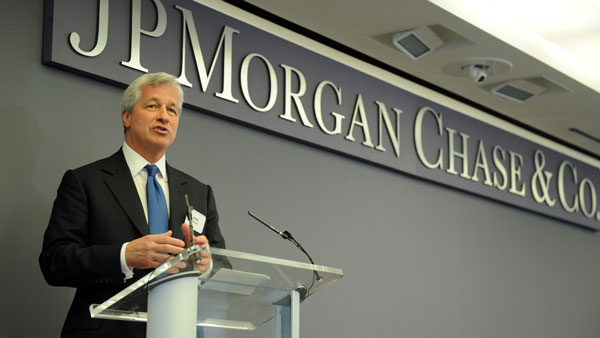
 JPMorgan CEO Jamie Dimon (Photo: AP)
JPMorgan CEO Jamie Dimon (Photo: AP)
Business CEOs are forecasting 2.7% U.S GDP growth in 2019, according to the first estimate released Friday by the Business Roundtable as part of its fourth-quarter economic outlook. The 2019 GDP forecast is moderately below the estimated 3% growth rate that many economists are expecting for the current year.
The roundtable's 2019 forecast was released as part of the group's regular quarterly Economic Outlook Index, based on CEOs' expectations for sales, capital spending and hiring over the next six months.
The overall Q4 Economic Outlook Index fell for the third consecutive quarter, down 4.9 points to 104.4. Readings above 50 indicate expansion; reading below, contraction.
All three sub-indexes also fell. The sales sub-index dropped 8.7 points to 123.6; the capital spending index fell 5.3 points to 97.9 and the hiring index lost 0.9 points to end at 91.7.
While 80% of the CEOs surveyed expect sales will increase over the next six months, just a little over half (53%) expect capital spending and hiring (56%) will rise.
Still, Jamie Dimon, chairman of the Business Roundtable and CEO of JPMorgan Chase, said in a statement that CEO plans for hiring and capital spending were still "historically high," due in large part to "significant progress on tax reform and a smarter approach to regulation."
Indeed, when asked about the greatest price pressures their companies face, 13% of the CEOs surveyed identified regulatory costs versus 40% two years ago, reflecting the easier regulatory regime of the current White House and Congress.



